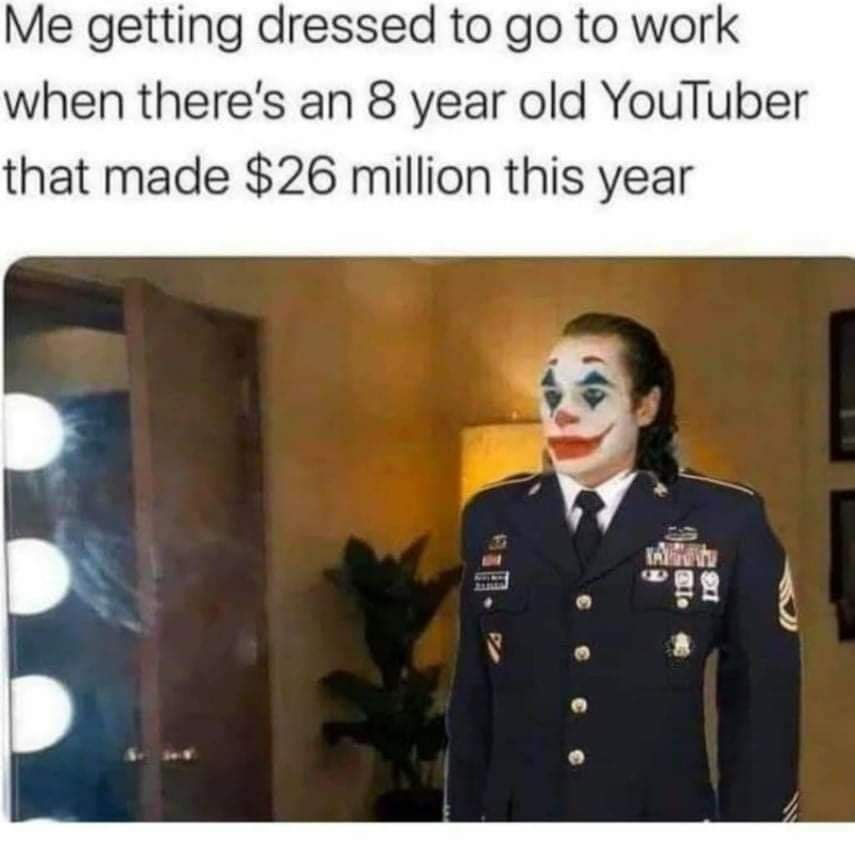this post was submitted on 14 Nov 2023
938 points (97.0% liked)
memes
10922 readers
4593 users here now
Community rules
1. Be civil
No trolling, bigotry or other insulting / annoying behaviour
2. No politics
This is non-politics community. For political memes please go to [email protected]
3. No recent reposts
Check for reposts when posting a meme, you can only repost after 1 month
4. No bots
No bots without the express approval of the mods or the admins
5. No Spam/Ads
No advertisements or spam. This is an instance rule and the only way to live.
Sister communities
- [email protected] : Star Trek memes, chat and shitposts
- [email protected] : Lemmy Shitposts, anything and everything goes.
- [email protected] : Linux themed memes
- [email protected] : for those who love comic stories.
founded 2 years ago
MODERATORS
you are viewing a single comment's thread
view the rest of the comments
view the rest of the comments

It's almost like an economic system that purports itself as a fair system that rewards hard work regularly reveals itself to be arbitrary and rewards those that already have more often than not.
The system rewards value. The core piece that seems unfair is that anything digital in infinitly duplicatible.
If I make furniture, and it takes me a week to make a dresser, then I can sell one dresser a week. If I'm a programmer, and it takes me one year to make a game, I can sell infinity games a week. Same with video content.
The system rewards ownership, and owners sometimes are forced to distribute some value back to the creators of value to get that reward. Sometimes owners are forced to or benefit from sharing some ownership (like in the case of IP on YouTube).
It's not unique to software, though the potential to infinitely copy software makes the relationship starker. For example owning a parcel of land is similar to owning a peice of IP, in that the creation/purchase potentially happens once, and rent can be extracted over time from everyone who utilizes it. The number of renters you can fit on a peice of software is theoretically infinite, but in practice limited by the number of potential customers, the availability of their attention, and your distribution Infrastructure, while the number of renters you can fit on a parcel of land is limited by its size and the structures on it.
Note that most owners did not personally create and do not personally develop what they own. Most software is not owned by programmers (who often make good money, but nowhere near the rent that is extracted from that software), and most homes are not owned by builders (who sometimes can't afford the homes they build). It's ownership which is primarily rewarded, and which spawns most further ownership.